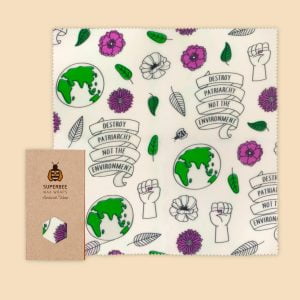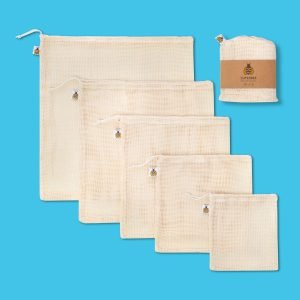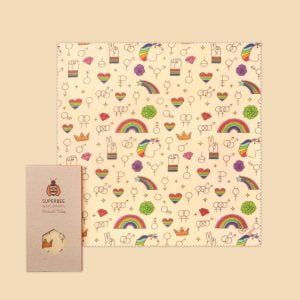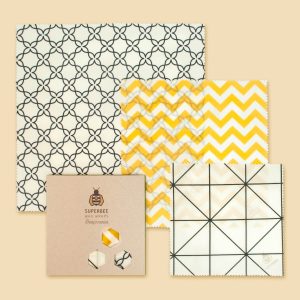13 of the easiest (and most effortless!) eco switches you can make
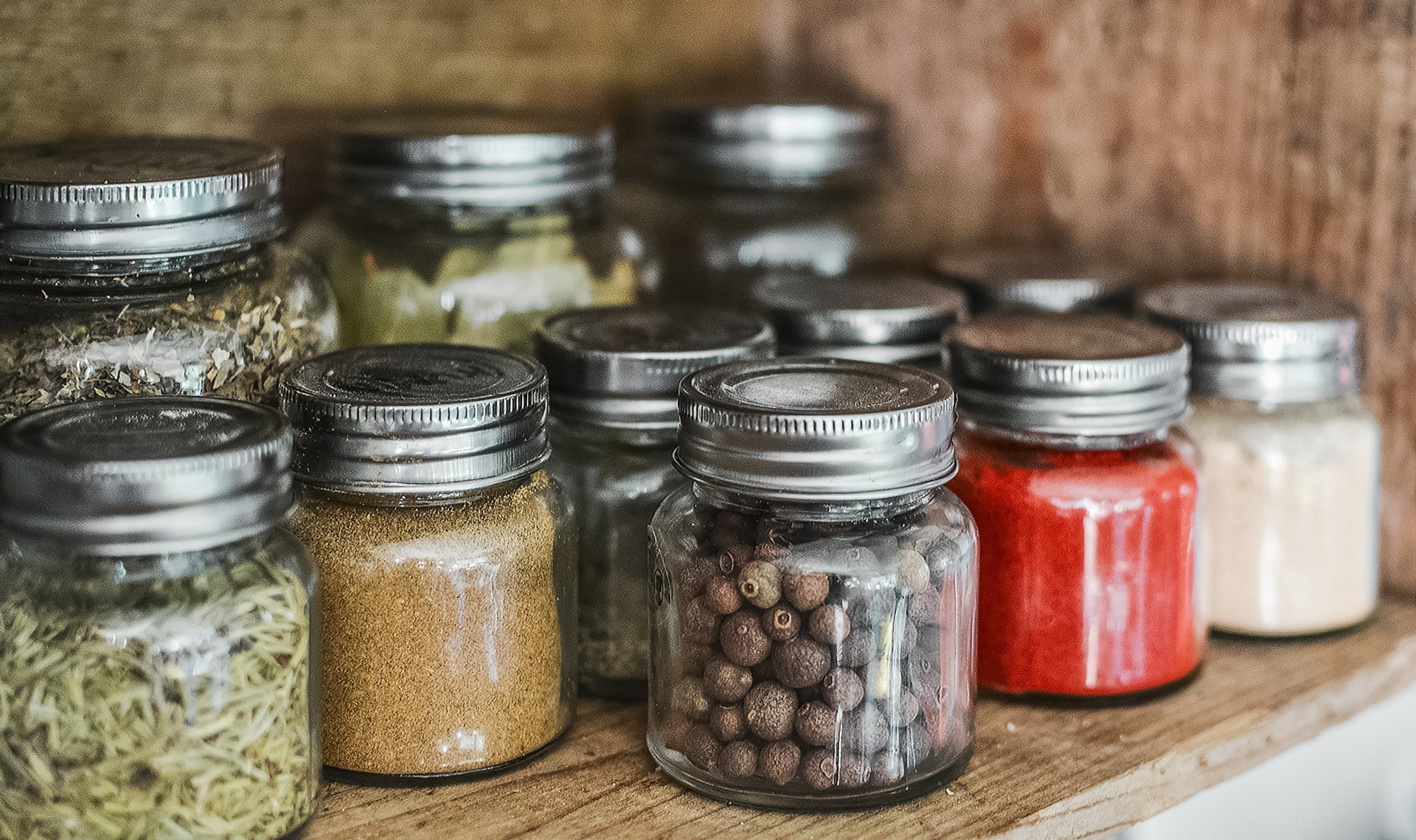
Cutting down on plastic use and going zero-waste is something we can all agree is good for the environment, but for those new to the movement, it can be a little intimidating or overwhelming.
Fortunately, ethical companies and manufacturers have started following the trend, and it’s never been easier to swap out wasteful plastic products for eco-friendly alternatives!
Read on for the best and most effortless eco switches that you can make in your home, kitchen, bathroom, and beyond.
1. Support local farmers rather than big, multi-national grocery stores
Heading out to your nearest large, impersonal grocery store is often the easiest way to do your weekly shopping. But swapping your support to local stories is one of the most impactful eco switches you can do. Sign up to your local CSA (community-supported agriculture), who’ll deliver fresh, organic produce, sustainably farmed meat, and other delicious local foods to your door.

Not only are you reducing the carbon footprint of your shopping, but you’re supporting local businesses that are doing their bit to farm in an eco-friendly way. Find your nearest CSA here.
2. Swap reusable beeswax wraps for saran wrap
Whether you call it plastic or saran wrap, this modern kitchen staple is an incredibly wasteful product. The environmental impact of single-use plastic (and even aluminum foil, which might be a smidgen better since it’s technically recyclable, but remains a single-use product) is something more consumers are becoming aware of as they look for plastic wrap substitutes.

Swap out those wasteful plastic sheets (they’re often hard to use anyway!) for reusable beeswax wraps and you’ll reduce your single-use plastic in one fell swoop. Oh, and save yourself the frustration of using a product that prefers sticking to itself rather than the intended food storage container.
Our all-natural beeswax wraps are made from organic cotton, food-safe dyes, sustainably harvested beeswax, coconut oil, and tree resin — aka earth-friendly products. Our Beeswax wrap sets, containing three different-sized beeswax wraps, are a great way to get started with this earth-friendly switch.
3. Trade your Tupperware for mason jars
When it comes to leftovers, your go-to is probably Tupperware for storing food. But have you ever wondered about the environmental impact of making these plastic containers, even though they’re used multiple times?
While Tupperware might be recyclable (not every recycling center accepts them, however), they are made from Polypropylene, which is itself derived from oil and natural gas. This process is considered to have a high impact on global warming potential, which isn’t good for the planet.

Luckily, there’s a really simple sustainable alternative: mason jars. Jars that you’ve bought containing jams, spreads, or other liquids can be repurposed when empty into reusable storage containers. Best of all, they’re fully recyclable at the end of their life.
4. Use a menstrual cup rather than disposable sanitary products
If you’re a woman, have you ever wondered about the landfill impact of your monthly visitor? But your period doesn’t have to mean years of plastic pads and tampons that go straight into the garbage. Menstrual cups are a great alternative and a waste-cutting product that can be used over and over.
5. Choose glass straws over single-use plastic straws
When you’re on the go and you just want to enjoy a refreshing iced latte or fruit-tastic smoothie, there’s nothing handier than a straw. The problem is that small plastic products like these are produced in the millions and far too many of them end up polluting our beaches and marine environments.
Instead of taking a “free” straw from the deli, make a habit of carrying a reusable straw around with you in your purse. Options like stainless steel, bamboo, and glass straws are both highly durable and keep countless wasteful plastic straws out of oceans and landfills.
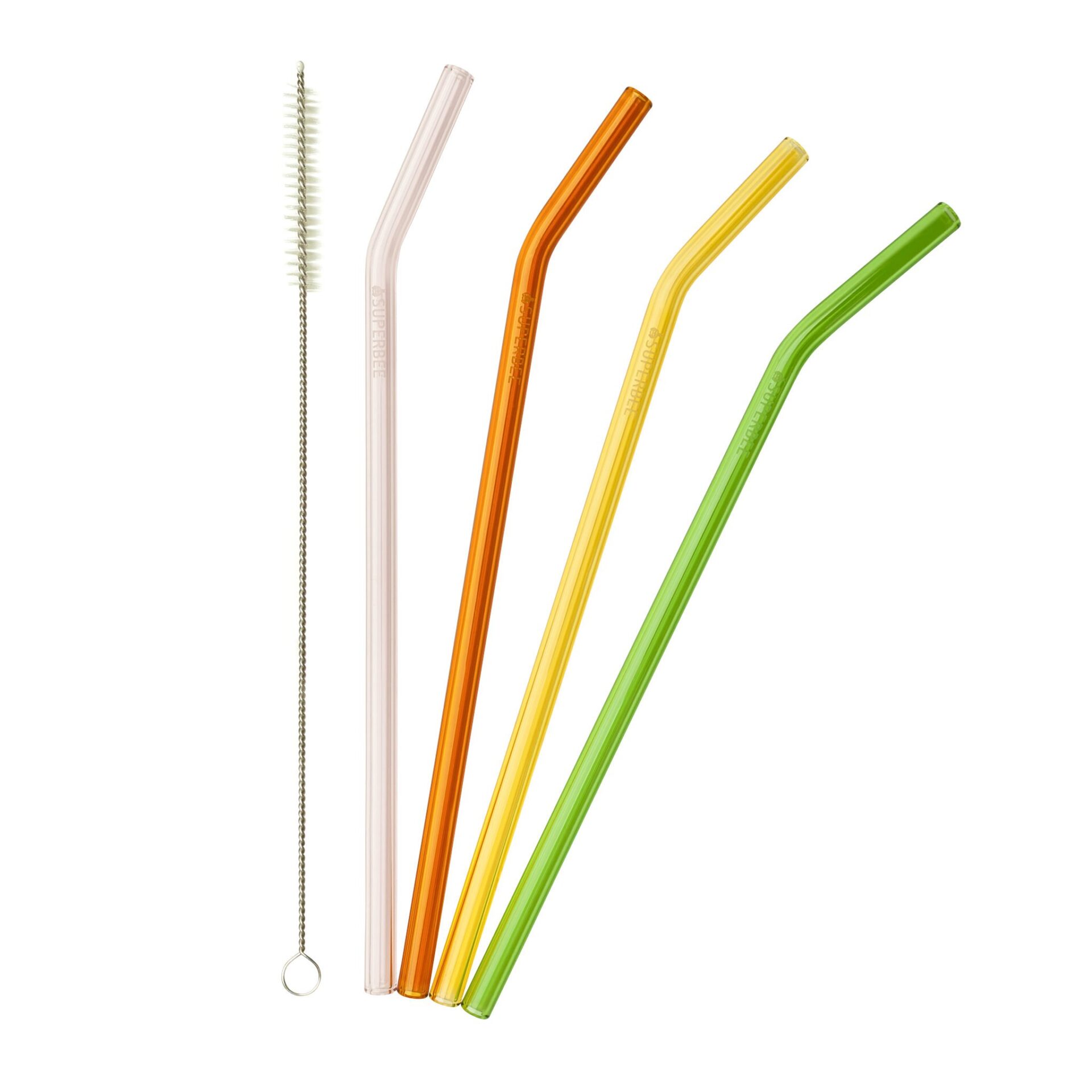
We think glass straws are so brilliant we started making our own: our colorful glass eco suckers are as fun as they are planet friendly.
6. Save the planet with a reusable cup rather than a disposable cup
We’ve gotten so used to getting a disposable cup of coffee to go that we barely even think about it. Just about everywhere is happy to provide a plastic or paper cup to enjoy your drink on the move, but it’s a seriously wasteful choice.
Whether you brew your beverages at home or are a regular at your favorite cafe, this eco-friendly switch is dead simple to make and one of the most eco-friendly everyday products you can buy: just start carrying a reusable travel mug (such as this eco-friendly bamboo one) or thermos with you to enjoy your favorite hot or cold beverage of choice without polluting the environment. Bonus: lots of coffee shops even offer discounts as an incentive to bring your own cup!

For juices, water, smoothies, or sodas, insulated water bottles or glass mason jars with lids offer a waste-reducing alternative to disposable paper or plastic cups. The trick is making a habit of remembering to take your reusable cups with you, so start by keeping a couple in your car or by the front door ready to go!
7. Ditch the car for more sustainable transport
Did you know that the average American takes 1,500 car trips per year and vehicles produce around one-third of all air pollution in the US? This can lead to high levels of pollution in urban areas due to increased air toxins and has a substantial impact on carbon emissions around the globe, too.

The easiest solution (and the best for your health!) is to get on your bike or walk instead, particularly for trips covering shorter distances. For longer ones, taking a public bus can almost halve the number of carbon emissions produced compared to using your own car.
8. Take reusable produce and shopping bags rather than plastic bags
Who hasn’t grabbed fresh apples at the supermarket, thrown them into a plastic bag, rung them up at the cashier, put them in yet another plastic bag, and then taken the apples home to the fruit bowl and thrown plastic bags into the garbage? Those two or more plastic bags you grabbed were used for maybe an hour or two at most — but will still take thousands of years to break down.
Whether you prefer a nice sturdy canvas sack or a thin organic cotton tote you can scrunch and stash in your purse, packable shopping bags are probably the most effective reusable products for reducing waste. They immediately cut down — or completely cut out— the amount of single-use plastic bags you use every time you head to the store.
When headed to the market, reusable produce bags (ours are made from 100% GOTS-certified organic cotton) are also a must for your fruit, veg, and bulk goods!
9. Use cleaning cloths instead of paper towels
Make a mess, wipe it up with a paper towel, then toss it in the trash and you’re done.
It seems like the easiest thing in the world, but how many rolls of paper towels do you go through in a week, a month, or a year?
That’s an awful lot of trees getting cut down. The best thing you can do to spare the trees is to clean like your grandparents did — with a cloth! This eco-friendly switch is super simple as we bet you already have kitchen cloths and washcloths in your home. Make a habit of using cloths for cleaning and, when they’re dirty or wet, just toss them in the laundry to be washed and reused.

Instead of purchasing new cloths or hand towels you can also easily make cleaning cloths, dish towels, and even tissues out of old sheets or t-shirts to be even more sustainable and waste-free. Alternatively, Invest in our turtle-patterned eco kitchen roll.
10. Buy natural loofahs instead of dish sponges
Doing the dishes can be a tough job and sometimes a cleaning cloth isn’t enough, so you whip out the dish sponge to do the scrubbing. Then you leave it in a damp environment to collect germs until it’s so gross you eventually have to throw it in the bin and get a new one. The greater your germophobia, the faster you go through these wasteful items.

Sponges don’t grow on trees, but do you know what do? Loofahs! Or, well, they grow on vines at least. These all-natural bristly bunches are not only a renewable product, but they’re also naturally antibacterial. Mother nature has gifted us with a wonderful alternative dish scrubbing tool, perfect for the kitchen, shower or anywhere in your home, making them a great eco-friendly alternative to sponges that are biodegradable, too!
11. Opt for eco-friendly bamboo toothbrushes instead of plastic toothbrushes
Your dentist probably tells you to replace your toothbrush with a new one every three to four months. Sensible, hygienic, and literally what the doctor ordered, but that ends up being a minimum of three toothbrushes in the trash each year…for as long as you live. That’s an awful lot of plastic sticking around in the environment for years after you’re gone.
Swap out your plastic toothbrush for a bamboo toothbrush to reduce your plastic use. A fast-growing and therefore highly sustainable wood, bamboo is an ideal substitute for the job and when it does need to be disposed of, it will only take a couple of years to break down and won’t do any harm to your garden compost or the environment.
12. Use wool dryer balls to lower your tumble dryer’s energy usage
Dryer sheets might be the go-to way to add fragrance and softness to your clothing, but in the competition between dryer sheets and dryer balls about which is the most environmentally friendly, there’s a clear winner.
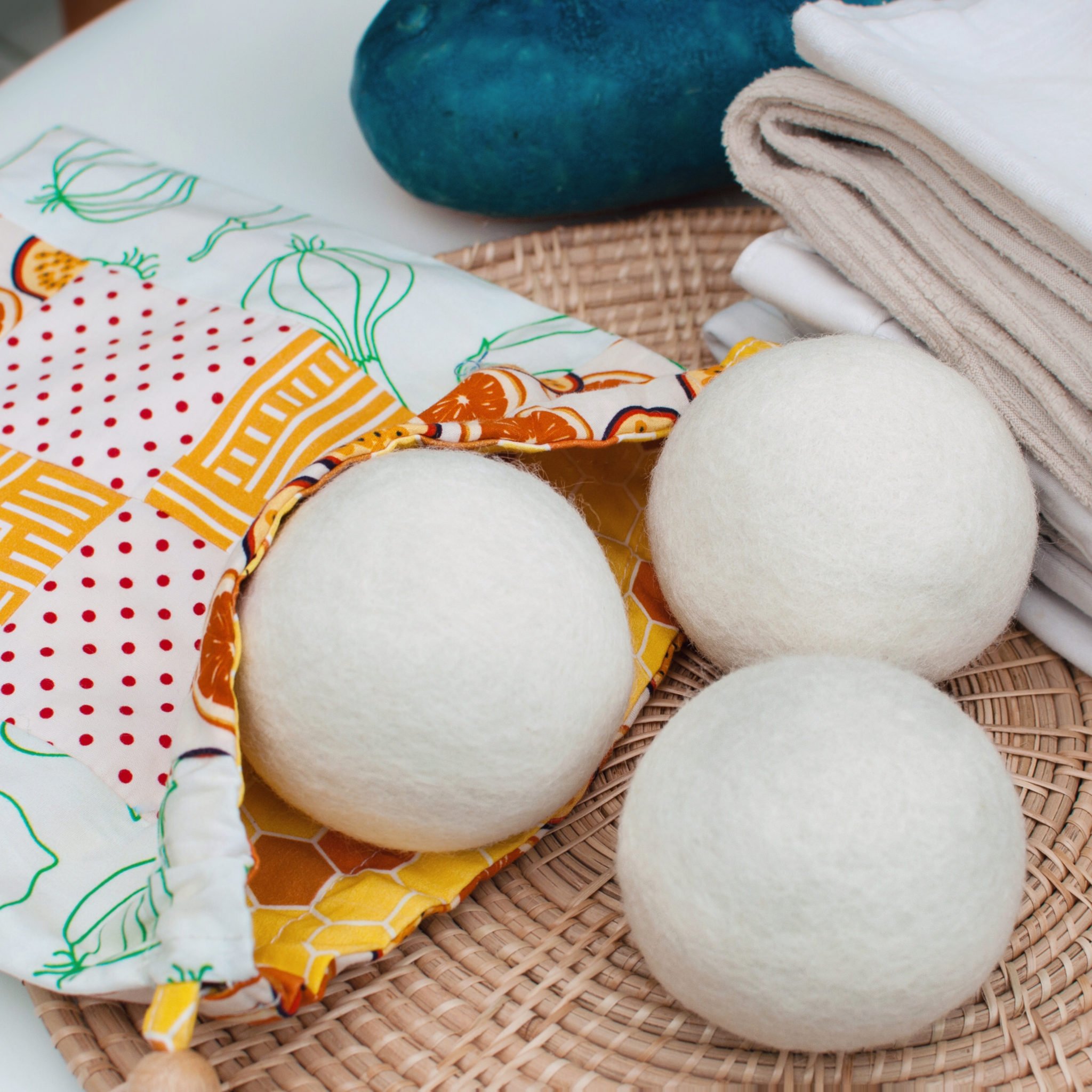
Unlike dryer sheets, which are typically made of non-recyclable polyester or paper, dryer balls are made from organic materials, such as wool. This means they don’t require fossil fuels to be made in the first place and don’t release microplastics when they spin around your dryer. What’s more, in addition to de-wrinkling and softening your clothes, they can actually speed up drying time by 30% — saving you money on your energy bill, as well. Wool dryer balls are some of our favorite eco-friendly household products as a result.
13. Cut your water usage by turning off while you lather
A supremely easy way to reduce your water consumption (and how much you pay every year) is to turn the tap off while you brush your teeth or lather up your hair. For the former, this can save you up to eight gallons of water per day or 200 per month, while the latter can conserve up to 150 per month.

Love your time in the shower? The quickest way to limit how much water you use is to simply take shorter showers. The average shower in America is eight minutes long or equal to 20 gallons of water. Taking a five-minute shower can save 7.5 gallons of water each day or over 2,700 if you take a shower every day of the year!
Ready to make some eco switches?
Most of the reasons we have such an impact on the environment is convenience, but just a tiny shift in your habits can make a huge difference. We bet you already have all you need to make some of these easy eco switches in your home, so why not give them a try today?
